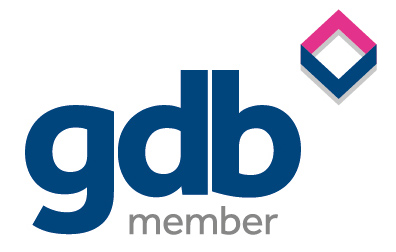Harvey John
Unit 2 Ferry Wharf
Hove Enterprise Centre
Basin Road North
Portslade, East Sussex
BN41 1BD
For many indirect tax professionals, the start of your career begins with compliance.
And over the last 8.5 years of recruiting in the indirect tax space, the prevailing attitude that I see time and time again is that working in compliance is simply a means to an end. A stepping stone. The gateway to the more glamourous world of advisory.
I believe this is a significant oversight.
Why?
Indirect tax compliance is changing…
What changes are happening in the VAT profession?
The world of advisory has always been the seen my many as the glitz and glamour of the tax world. And I can understand why. It requires extensive experience and, usually, a chartered qualification whereas tax compliance provides an entry point with far less barriers. Naturally, this gives ‘advisory’ some exclusivity.
But there are 3 fundamental factors that indirect tax compliance professionals should remember when planning their career development:
- Advisory isn’t for everyone and you shouldn’t just assume that you’re only route to progression is to force yourself down this route & become chartered.
- Digitalisation – and the rise of tax technology – has changed the game for compliance specialists.
- The demand for compliance specialists keeps continuing to increase in Europe.
In the past year alone, we’ve seen skyrocketing demand for VAT compliance specialists across Europe and you may recall me recently speculating whether there’s a VAT compliance crisis in the UK. In general, we’ll frequently see 60% of all in-house vacancies being compliance-based.
Digitalisation and scarcity is creating more opportunities
There really is a lot going on in the VAT market isn’t there? And many of these changes are fuelled by the movement towards digitalisation and e-invoicing, paired with the fact that those with these skills are hard to find!
It was only in December last year that, after months of debate, the European Commission formally proposed the legislative changes that have become known as ViDA (VAT in the Digital Age).
But even long before ViDA was announced, the presence of “e-invoicing”, “automation”, “process improvement”, “tax engine”, and “data” have worked their ways onto the job descriptions of indirect tax compliance jobs.
The compliance arena is transforming. Rapidly.
Gone are the days of manual filing and excel sheets and, so, the traditional routes of progression – and subsequently the view that the only way to climb the tax ladder is to become an advisor – has become outdated.
“I’m working in VAT compliance. Where do I go from here?”
Firstly, one needs to assess where their core strengths really are. Some of you really should be advisors but, equally, those who are more operational, analytical, and data-savvy should assess how they can utilise their experience and begin tailoring it to the market changes.
Clearly indirect tax compliance isn’t what it used to be. The tax compliance world is changing rapidly and it’s the technological evolutions here that are creating opportunities. As a result, those with compliance skills are the prime candidates to break into the tax technology space.
Another important experience – and skill demand – in the compliance space is working with multiple jurisdictions. How much experience do you have filing returns or working with different countries? With indirect tax being such a cross-border discipline, ensuring that your progressing not just vertically but horizontally is paramount.
The emerging world of tax technology
Tax technology roles have been steadily rising across the UK & EMEA regions – as documented recently by our friends at Innovate Tax in their blog, The Rise of the Tax Technologist.
It’s not even a prediction to say this upward trend will continue. It’s a given.
Throughout 2022, when hiring for tax technology profiles, we observed that employers in this space have begun to display a preference for candidates with solid compliance backgrounds.
When it comes to advancing down the tax technology route, the knowledge required by a compliance professionals provides a solid foundation.
So what are the takeaways here?
We all know tax technology isn’t going away, so don’t be too hasty when planning your career progression. And if you need guidance on this, drop me a message and I’ll be happy answer any questions.
Author

From boutiques to the Big 4, and start-ups to multinational corporations, Alex manages a diverse portfolio of clients worldwide which has enabled him to develop a vast global network of indirect tax and tax technology professionals in 40+ countries.







